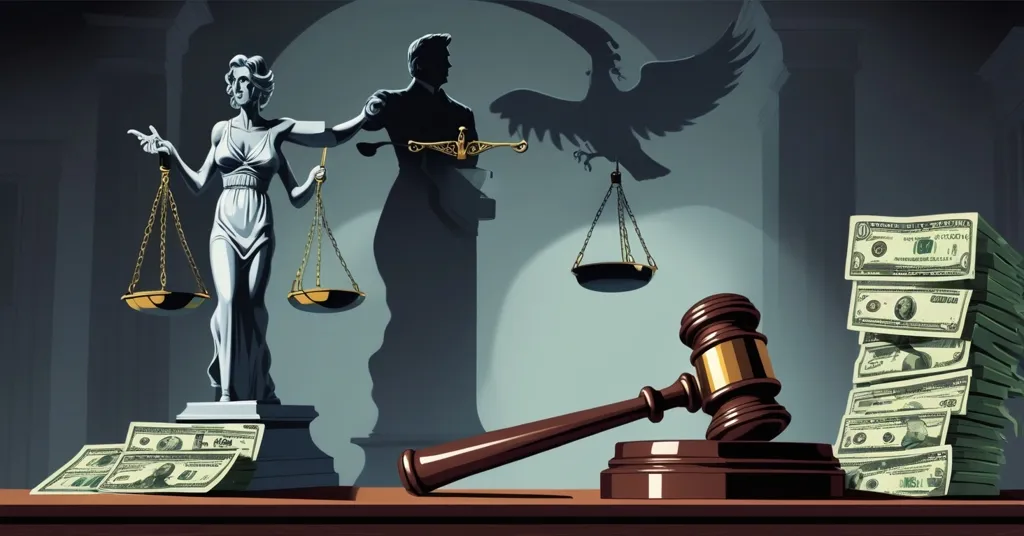US Treasury Delists Tornado Cash but Faces Backlash Over Lawsuit Dismissal

US Treasury Faces Backlash Over Attempt To Dismiss Tornado Cash Case Without Final Ruling
The US Treasury’s decision to delist Tornado Cash from its sanctions list has sparked controversy, with critics arguing that dismissing the lawsuit without a final court ruling could leave the crypto-mixing protocol vulnerable to future attacks.
- US Treasury delists Tornado Cash but seeks to dismiss lawsuit.
- Coinbase’s CLO argues for a final ruling to protect the protocol.
- Ongoing legal battles for Tornado Cash founders and developers.
On March 21, 2024, the US Treasury’s Office of Foreign Assets Control (OFAC) removed Tornado Cash and nearly 100 associated Smart Contract addresses from its Specially Designated Nationals (SDN) list. Smart Contract addresses are unique codes on the blockchain that execute transactions automatically. This action followed a November court ruling that found the Treasury had overstepped its authority by sanctioning the decentralized crypto-mixing protocol, which operates on the Ethereum blockchain to enhance privacy by obscuring the trail of transactions.
Despite the delisting, the Treasury’s attempt to dismiss the lawsuit without a final court ruling has drawn sharp criticism from Coinbase’s Chief Legal Officer, Paul Grewal. In a strongly worded statement, Grewal argued that a final ruling is essential to prevent future attacks on Tornado Cash, citing legal precedents that support the need for such a ruling. “After grudgingly delisting TC, they now claim they’ve mooted any need for a final court judgment. But that’s not the law, and they know it,” Grewal stated.
Grewal’s argument hinges on the voluntary cessation exception and the Supreme Court ruling in FBI v. Fikre (2024). In simple terms, this means the government can’t just stop a practice and claim the case is over; they need to prove it won’t happen again. Without a final ruling, the Treasury could potentially relist Tornado Cash in the future, leaving the protocol and its users at risk.
The Treasury’s actions are seen as insufficient to ensure the protocol’s safety, especially given ongoing concerns about money laundering and state-sponsored hacking. The agency remains particularly worried about the significant state-sponsored hacking and money laundering campaign by North Korea, with the Lazarus Group allegedly using Tornado Cash to launder funds. The Treasury has stated that it will continue to monitor transactions that may benefit malicious actors, but critics argue that this is not enough without a final court ruling.
The broader fight for crypto privacy continues, with legal battles still ongoing for Tornado Cash’s founders and developers. Roman Storm, a co-founder of the protocol, is currently facing money laundering charges and awaiting trial. Meanwhile, developer Alexey Pertsev was convicted on similar charges and is awaiting an appeal. These cases highlight the potential chilling effect of broad legal actions on the crypto industry, as noted by Matt Huang, co-founder of Paradigm:
The prosecution’s case threatens to hold software developers criminally liable for the bad acts of third parties, which would have a chilling effect on crypto and beyond.
The US District Court for the Western District of Texas reversed the OFAC sanctions in January, but the final remedy remains undecided. The outcome of this case could set important precedents for how similar cases are handled in the future, particularly in the context of regulating decentralized technologies and protecting the rights of software developers.
As the crypto community watches this case unfold, it’s clear that the fight for privacy and security in the decentralized world is far from over. The Treasury’s attempt to dismiss the Tornado Cash lawsuit without a final ruling has only added fuel to the fire, with critics arguing that it’s a shortsighted move that could have far-reaching consequences for the industry.
Key Takeaways and Questions
- What action did the US Treasury take regarding Tornado Cash on March 21, 2024?
The US Treasury’s OFAC removed Tornado Cash and nearly 100 associated Smart Contract addresses from its SDN list.
- Why does Coinbase’s CLO argue for a final court ruling on the Tornado Cash lawsuit?
Paul Grewal argues that a final ruling is necessary to prevent the US Treasury from relisting Tornado Cash in the future, citing the voluntary cessation exception and the Supreme Court ruling in FBI v. Fikre (2024).
- What are the ongoing legal issues faced by Tornado Cash’s founders and developers?
Roman Storm and Alexey Pertsev are facing money laundering charges. Pertsev was convicted and is awaiting an appeal, while Storm awaits his trial.
- How does the Treasury’s delisting of Tornado Cash impact the broader fight for crypto privacy?
The delisting is a significant development, but the lack of a final court ruling and ongoing legal battles indicate that the fight for crypto privacy continues, with potential implications for the rights of software developers and the regulation of decentralized technologies.
- What concerns does the US Treasury still have regarding Tornado Cash?
The Treasury remains concerned about the significant state-sponsored hacking and money laundering campaign, particularly by North Korea, and will continue to monitor transactions that may benefit malicious actors.



